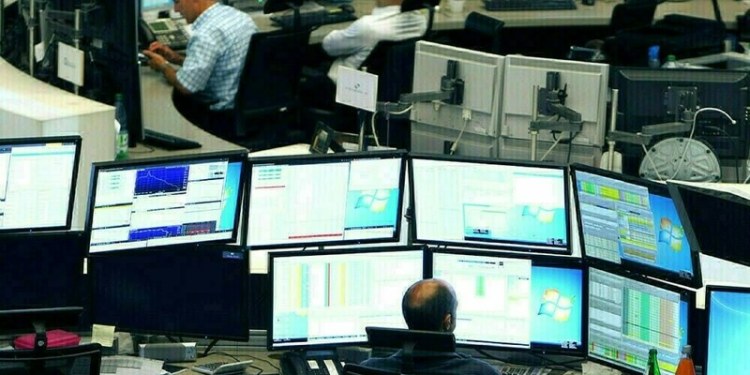© Reuters. FILE PHOTO: A man wearing a protective face mask, following an outbreak of the coronavirus, talks on his mobile phone in front of a screen showing the Nikkei index outside a brokerage in Tokyo, Japan, February 26, 2020. REUTERS/Athit Perawongmetha
By Alun John
HONG KONG (Reuters) – Asian shares edged higher on Monday ahead of a week packed with major quarterly earnings announcements though news of trials of a property tax in China weighed on Hong Kong and mainland Chinese markets.
MSCI’s broadest index of Asia-Pacific shares outside Japan rose 0.26% while Japan’s Nikkei lost 1% on softer earnings by several local companies.
Australian shares rose 0.47%, supported by miners, while South Korea was up 0.5%, though these gains were balanced by more muted moves in Greater China.
Chinese blue chips were flat, though an real estate index shed 3%, while the Hong Kong benchmark gained 0.18% despite a 2.6% fall in an index of Hong Kong listed mainland property firms.
The property stock declines followed a Saturday announcement by China’s parliament’s top decision-making body that will roll out a pilot real estate tax in some regions.
Embattled developer China Evergrande Group last week appeared to avert a costly default with a last-minute bond coupon payment, and Reuters reported Monday that some bond holders had received payment.
“Although we had some news on the Evergrande front, I think we will see more pressure on the property sector, especially the smaller guys,” said Carlos Casanova Asia economist at UBP pointing to authorities’ efforts to ensure a correction in house prices, and the expansion of plans for a pilot property tax at a time when many property companies had bonds maturing in the coming months.
Also on investors’ minds is a string of company earnings due this week. HSBC and Facebook (NASDAQ:FB) will both publish quarterly results on Monday, in Asian trading and late U.S. hours respectively.
Later in the week will be the turn of other benchmark heavyweights including tech giants Microsoft (NASDAQ:MSFT), Apple (NASDAQ:AAPL) and Alphabet (NASDAQ:GOOGL), and European and Asian financial behemoths from Deutsche Bank (DE:DBKGn) and Lloyds (LON:LLOY) to China Construction Bank (OTC:CICHF) and Nomura.
“This week earnings take centre stage,” said Chris Weston, head of research at brokerage Pepperstone in Melbourne, in a morning note.
The results will be closely watched after a strong start to the U.S. earnings season for many companies, especially financials, helped both the Dow Jones Industrial Average and the S&P 500 touch record highs last week, though the Nasdaq fell on Friday after Snap (NYSE:SNAP) and Intel Corp (NASDAQ:INTC)’s quarterly results disappointed.
The risk friendlier mood that supported equities has weighed on safe-haven currencies, as have rising energy prices which supported currencies including the Aussie and Canadian dollars.
The dollar index was last at 93.521, down 0.15% on the day, heading towards its month low of 93.455 hit last week, and well off mid-October’s 12-month high.
Traders are waiting for U.S. third quarter GDP figures due Thursday with a weak print likely to weigh on the dollar, according to analysts at CBA.
In contrast, UBP’s Casanova said a strong reading could push U.S. benchmark yields higher and drive sooner-than-expected tightening by U.S. policy makers.
Markets are still trying to position themselves for a widely expected tapering of the U.S. stimulus programme this year, and the possibility of rate hikes late in 2022
Federal Reserve Chair Jerome Powell on Friday said the U.S. central bank should start the process of reducing its support of the economy by cutting back on its asset purchases, but should not yet touch interest rates.
As tapering looms, U.S. benchmark yields have been rising and yields on 10-year Treasury notes hit a five-month high of 1.7064% last week. In early Asia they were last 1.6421%.
Oil prices rose on Monday, extending pre-weekend gains, with U.S. crude hitting a seven-year high as global supply remained tight amid strong demand worldwide.
Brent crude rose 0.88% to $86.28 a barrel, while U.S. crude rose 1.11% to $84.69, a new seven-month high.
Spot gold rose 0.3% to $1,797 an ounce after posting gains for the past two weeks on rising inflation concerns.
Bitcoin another asset oft-described as an inflation hedge was last at $61,901 up 1.6% after last week’s turbulent trade when it hit a new high of $67,016.
Source: Investing.com




























